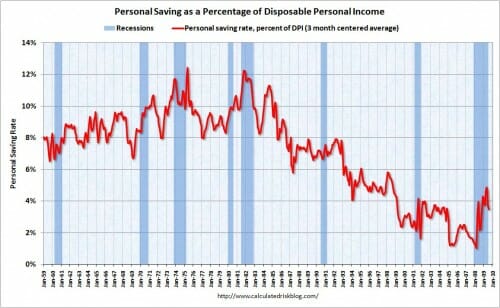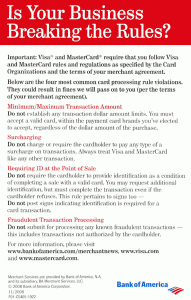Well, we have upheld the ban on payday loans here in Arizona.
The payday-loan industry, which flourished this past decade on Arizonans' almost-insatiable need for quick, short-term loans regardless of their high interest rates, may have to close down in Arizona unless state lawmakers can be persuaded to ignore voters' wishes.
Voters last week overwhelmingly rejected Proposition 200, a ballot initiative financed and written by the loan companies to allow them to continue charging high interest rates on small loans. That decision placed Arizona among a growing number of states that have effectively shut down the payday lenders.
So, payday loans from company A to person B are really popular with both A & B, and the industry has "flourished." But persons C, who don't participate in this market, have decided that, for their own good, A & B need to stop engaging in this behavior. One such third party explains it this way:
Sen. Debbie McCune Davis, D-Phoenix, opposed Prop. 200 and has steadfastly fought payday lenders. She sees no need to let payday lenders continue to charge higher interest rates than other lenders.
Her and voter's actions have effectively limited payday loan companies to charging total interest and fees equivalent to no more than 36% annual interest. OK, you say, this seems like a really high rate. That should be enough, right? Well, the problem comes with fixed costs and loan size. Lets look at an example.
A typical payday loan size and term is about $400 for 18 days (pdf). A typical fee for such a loan is $50, which includes both fixed costs and interest. Wow, annualized that is 250%. Usurious! So would you personally go out and get a payday loan? No way! And that is why voters vote to ban them - they are not good for me personally, so they must not be good for anyone else.
But here is the problem. How do you maintain a storefront and trained people and all the documentation and collection apparatus for less than $50? The same loan at 36% would allow a fee of only $7.20. That barely even covers paying someone to originate the loan at the counter, much less pay interest and a risk premium.
Try going to the bank and getting a home loan or some other type of loan for only a $50 fee. Granted those loans are more complicated, but in turn you will likely get charged hundred and probably thousands of dollars in fees. There is a large fixed cost component to the act of lending which we tend to ignore on larger loans, but is there none-the-less. In fact, just try to go to a bank and get a loan for $400 at all. They don't make them, outside of the credit card industry, which solves this problem in part through economies of scale and in part through cost-shifting costs to merchants, options not really available to payday loan companies.
And so far, we are only talking about fixed costs, not the underwriting risk of extending loans to about any person who wanders in the door and can sign his/her name. Anyone remember sub-prime mortgages? Maybe there is a justification for large risk premiums, after all, on loans to under-qualified borrowers. Particularly when you consider that most payday loan customers could not qualify even for a sub-prime mortgage.
The best equivalent to a payday loan offered by banks is overdraft protection, where the bank will go ahead and pay out on checks where there are insufficient funds, though they will charge a $20-$30 fee per check paid. As you can see, these fees are very similar in magnitude to those charged by payday loan companies, particularly when you consider that these fees are generally charged on checks that average about $150. Also, folks who get one overdraft fee usually get several in a row. People are willing to pay these fees because they are in fact lower than the fees of actually having a check bounce, which can incur similar fees from merchants as well as hurting one's credit.
So, you just had to write three checks to get the power and water and telephone turned on, and you are pretty sure the money is not there in your checking account. You are facing $80 in bounced-check (NSF) fees or overdraft fees. Now might you consider a $400 loan for a $50 fee? Well, probably the answer is still no, you would put it on your credit cards. But everyone doesn't have credit cards, or doesn't qualify for them, or don't have a lifestyle that allows for them. Where do they go, short of Tony Soprano?
Update: A reader sent me a link to this report, comparing payday loan rates to overdraft protection, and finding them of similar magnitude. The author calculates an average $28.61 overdraft fee on an average $155 bounced check yields an APR of 478%. There is a fixed cost to lending, and small very short term loans cost a lot of money, no matter how you get them.
I will remind folks not to be fooled by 18% or 23% rates on credit cards and set that as the market rate for small loans. First, this misses annual fees for the cards. But more importantly, it misses merchant fees. Merchants pay between 2.5% and 3.5% of everything you charge to the credit card companies. This helps to subsidize rates and, particularly, subsidize the fixed costs of small lending transactions.


